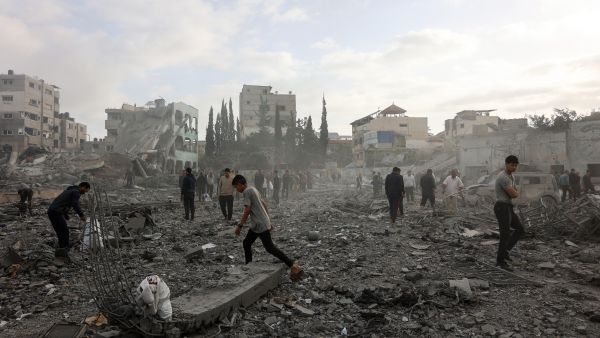ALBAWABA - As Israel's military campaign in Gaza intensifies, children are facing a dual threat: relentless airstrikes and a deepening humanitarian crisis due to an ongoing aid blockade. Despite growing international appeals, Israel continues to prevent the entry of vital aid into the besieged enclave.
Al Jazeera aired exclusive footage from the Egyptian side of the Rafah crossing, showing thousands of aid trucks stranded. These convoys, carrying food, medical supplies, and fuel, have been blocked from entering Gaza since the beginning of March. The suspension follows Israel’s decision to resume its offensive after the breakdown of a ceasefire agreement.
The Government Media Office in Gaza reported Sunday that 490 children have been killed by Israeli attacks in just the past 20 days. Meanwhile, UNICEF has issued stark warnings that nearly one million children in Gaza are now at risk of death due to starvation and malnutrition. It confirmed that no humanitarian aid has entered the territory since March 2, exacerbating shortages of food, clean water, and medicine.
Philippe Lazzarini, head of UNRWA, described the situation as the darkest moment for humanity in the ongoing war. The agency notes this is the longest Gaza has gone without aid since the conflict began.
Georgia Tacey from Save the Children told Al Jazeera that no place is safe for Gaza’s children, with more than 15,000 already killed and 1.9 million people displaced. She urged international pressure to protect civilians and ensure humanitarian access.
Meanwhile, aid-dependent bakeries are closing due to a lack of flour and fuel, and prices for basic food items have surged. According to Gaza officials, around 17,000 trucks of humanitarian aid and 1,400 fuel trucks were expected in March—but never made it in.








![Poster of Layl series, which is taken from "Safirin Kizi" [The Ambassador's Daughter] Layl, Safirin Kizi](/sites/default/files/styles/d02_traditional/public/2025-12/6751946_1766213184.jpg?h=d18f17b4&itok=-D5UPNfC)

